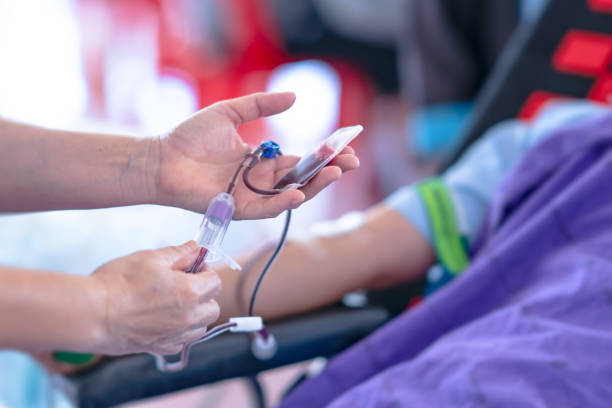National Blood Donation Day: A Crucial Call to Action
Introduction to National Blood Donation Day
National Blood Donation Day is a vital occasion dedicated to raising awareness about the importance of blood donation. Observed annually, this day serves as a reminder of the critical need for blood in medical treatments and emergencies. It is a day to celebrate the altruistic acts of individuals who donate blood, potentially saving lives and enhancing the quality of healthcare worldwide. This event is not only a call to action but also an opportunity to educate the public on the impact of their contributions.
The Significance of Blood Donation
Blood donation is a cornerstone of modern medicine, essential for a range of medical treatments and emergency interventions. It plays a crucial role in surgeries, trauma care, cancer treatments, and the management of chronic diseases. Without a steady supply of blood, many of these procedures would be impossible. The availability of donated blood ensures that patients receive timely and effective care, highlighting the importance of a continuous and reliable blood supply.
The Science Behind Blood Donation
Understanding the science of blood donation can help demystify the process and emphasize its importance. Blood is a complex fluid composed of red blood cells, white blood cells, platelets, and plasma. Each component has a unique function that supports the body’s overall health. Red blood cells transport oxygen from the lungs to the rest of the body, while white blood cells are essential for immune function. Platelets help with blood clotting, and plasma carries nutrients and hormones.
When an individual donates blood, it is typically separated into its components, allowing each part to be used for different medical needs. For instance, red blood cells can be used in transfusions for patients with anemia or those undergoing surgery, while platelets are crucial for cancer patients undergoing chemotherapy. Plasma can be used for patients with clotting disorders. This separation and utilization of blood components maximize the impact of each donation.
The Impact of National Blood Donation Day
National Blood Donation Day serves multiple purposes. It is a day to honor and thank donors for their contributions, but it is also an opportunity to highlight the ongoing need for blood donations. Public awareness campaigns on this day often feature stories from recipients whose lives have been transformed by blood donations. These personal stories illustrate the profound difference that a single donation can make, reinforcing the message that every donation counts.
Additionally, this day helps to address the challenges associated with blood donation, such as the need for a diverse donor base and the importance of regular donations. Blood banks and health organizations use National Blood Donation Day to encourage new donors to step forward and remind existing donors of the importance of maintaining a regular donation schedule.
Promoting Blood Donation: Strategies and Initiatives
Promoting blood donation involves various strategies and initiatives, many of which are highlighted during National Blood Donation Day. Educational programs in schools and workplaces aim to increase awareness and encourage participation. Social media campaigns and public service announcements spread the message to a broader audience, often using compelling visuals and testimonials to inspire action.
Collaborations with community organizations, businesses, and media outlets amplify the reach of these initiatives. Blood donation drives and events organized on this day create opportunities for individuals to donate blood conveniently and safely. By making blood donation accessible and promoting its benefits, these initiatives contribute to a steady supply of blood and reinforce the culture of giving.
Challenges and Solutions in Blood Donation
Despite the importance of blood donation, several challenges persist. One major issue is maintaining an adequate and diverse donor base. Blood banks require donors of all blood types, and the need for specific types can fluctuate. Additionally, ensuring a consistent supply requires overcoming barriers such as donor reluctance, logistical issues, and the need for frequent donations.
Addressing these challenges involves a multifaceted approach. Educational efforts focus on dispelling myths and misconceptions about blood donation, ensuring that potential donors have accurate information. Mobile blood donation units and partnerships with local organizations help improve accessibility. Regular communication and engagement with donors keep them informed and motivated to continue their contributions.
The Role of Technology in Blood Donation
Technology plays a crucial role in modern blood donation practices. Advances in medical technology have improved the safety and efficiency of blood collection and processing. Automated systems for blood testing and storage ensure that donations are properly screened and preserved. Additionally, technology facilitates the management of blood inventories, helping to match donations with patient needs more effectively.
Innovations in donor recruitment and engagement, such as online appointment scheduling and tracking systems, make the donation process more convenient for individuals. These technological advancements enhance the overall experience for both donors and recipients, contributing to a more effective and streamlined blood donation system.
The Future of Blood Donation
The future of blood donation looks promising, with ongoing research and advancements aimed at improving the process. Innovations in synthetic blood and blood substitutes could potentially address some of the limitations associated with traditional blood donation. Research into more efficient blood collection methods and better donor matching techniques also holds the potential to enhance the effectiveness of blood donation.
Moreover, continued efforts to raise awareness and encourage participation in blood donation will play a crucial role in sustaining a healthy blood supply. National Blood Donation Day and similar initiatives will continue to be pivotal in driving these efforts, ensuring that the importance of blood donation remains at the forefront of public consciousness.
Conclusion
National Blood Donation Day is more than a symbolic occasion; it is a crucial event that underscores the importance of blood donation in saving lives and improving healthcare. By celebrating the contributions of donors, addressing challenges, and promoting awareness, this day plays a vital role in maintaining a steady and diverse blood supply. As we look to the future, continued innovation, education, and engagement will be essential in supporting the ongoing need for blood donation and ensuring that its life-saving impact endures.
In summary, National Blood Donation Day serves as a powerful reminder of the collective effort required to sustain a healthy blood supply. Through awareness, education, and community involvement, we can continue to support this essential aspect of modern medicine and make a meaningful difference in countless lives.




